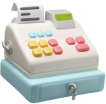Walmart Sales Rocket Amid Cautionary Spending and High Inflation

Updated Aug 16, 2024
Inflationary pressures have caused many American consumers to cut back on spending and prioritize affordability, causing a decline in sales for many companies and stores. McDonalds, Home Depot, and Disney are just some of the few names struck hard by cautionary spending, which has reported weaker-than-expected earnings this summer.
However, Walmart received massive profits, with its sales climbing in the most recent quarter. Its stock surged by about 8.4%, reaching an all-time high of $74.44. Moreover, its shares almost hit 40%, highlighting its impeccable quarterly sales boom.
Walmart’s Sales Jump
Walmart’s sales growth exceeded analyst expectations, raking in a 4.2% rise year-over-year across its US branches, over 3.5% estimates. The company also reported an unexpected 1% rise in its US retail sales in July.
Moreover, its adjusted earnings for the three months ending July were up 9.8% from the corresponding period in 2023 to 67 cents per share, ahead of Wall Street’s Forecast of 65 cents a share.
Following this remarkable growth, the company changed its yearly sales growth projections to 3.75%- 4.75%, up from 3%- 4%. It also estimates that its earnings will be between $2.35- $2.43 per share, up from its prior forecast of $2.23- $2.3.
UBS retail analyst Michael Lasser cited Walmart’s convenience in engaging its customers via its many stores and the reasonable prices it offers as reasons for its success.
He also mentioned that Walmart’s growing online business increased its quarterly sales, and true to that, U.S. online sales surged by 24% year over year, accounting for over 20% of the company’s revenue.
Walmart is on its own path. This is less about what is happening with the overall consumer environment because it has been challenging and more about Walmart.
Michael Lasser
What did Walmart’s Stock Rise Mean for Other Companies?
Walmart’s impressive July earnings raised hope for many companies, who saw the growth as a somewhat end to cautionary spending and an economic recession.
Its stock rise influenced the SPDR S&P Retail ETF’s stock gain, which grew by 4.2%, outperforming the S&P 500’s 1.5% gain. Companies like Target, Costco Wholesale, Best Buy, Lowe’s, and Home Depot also benefited from their stock rising by 4.2%, 1.7%, 1.4%, and 0.9%, respectively. Even investors joined the optimism train, expecting an improvement in earnings in the retail sector with Walmart’s assurance that shoppers are still hanging in there.

Sign up for our newsletter
Join our exclusive community of over one million investment enthusiasts and receive our free newsletter filled with analysis, news, and updates every weekday.












 All stocks
All stocks
 All Stocks
All Stocks
 52-Week High
52-Week High
 52-Week Low
52-Week Low
 AI Companies
AI Companies
 Big Tech
Big Tech
 Death Cross Stocks
Death Cross Stocks
 Golden Cross Stocks
Golden Cross Stocks
 High Beta
High Beta
 High Dividend
High Dividend
 High Volume
High Volume
 Highest Cash
Highest Cash
 Highest EBITDA
Highest EBITDA
 Highest NET Income
Highest NET Income
 Highest Revenue
Highest Revenue
 Largest Employers
Largest Employers
 Most Expensive
Most Expensive
 Most Volatile
Most Volatile
 Tech Companies 2024
Tech Companies 2024
 Triangle Patterns Stocks
Triangle Patterns Stocks
 All ETFs
All ETFs
 All ETFs
All ETFs
 Energy Sector ETFs
Energy Sector ETFs
 Major World ETFs
Major World ETFs
 Top US ETFs
Top US ETFs
 All Tools
All Tools
 Alerts
Alerts
 Technical Signals
Technical Signals
 Score
Score
 Smart Portfolio
Smart Portfolio
 Candle and Chart Patterns
Candle and Chart Patterns
